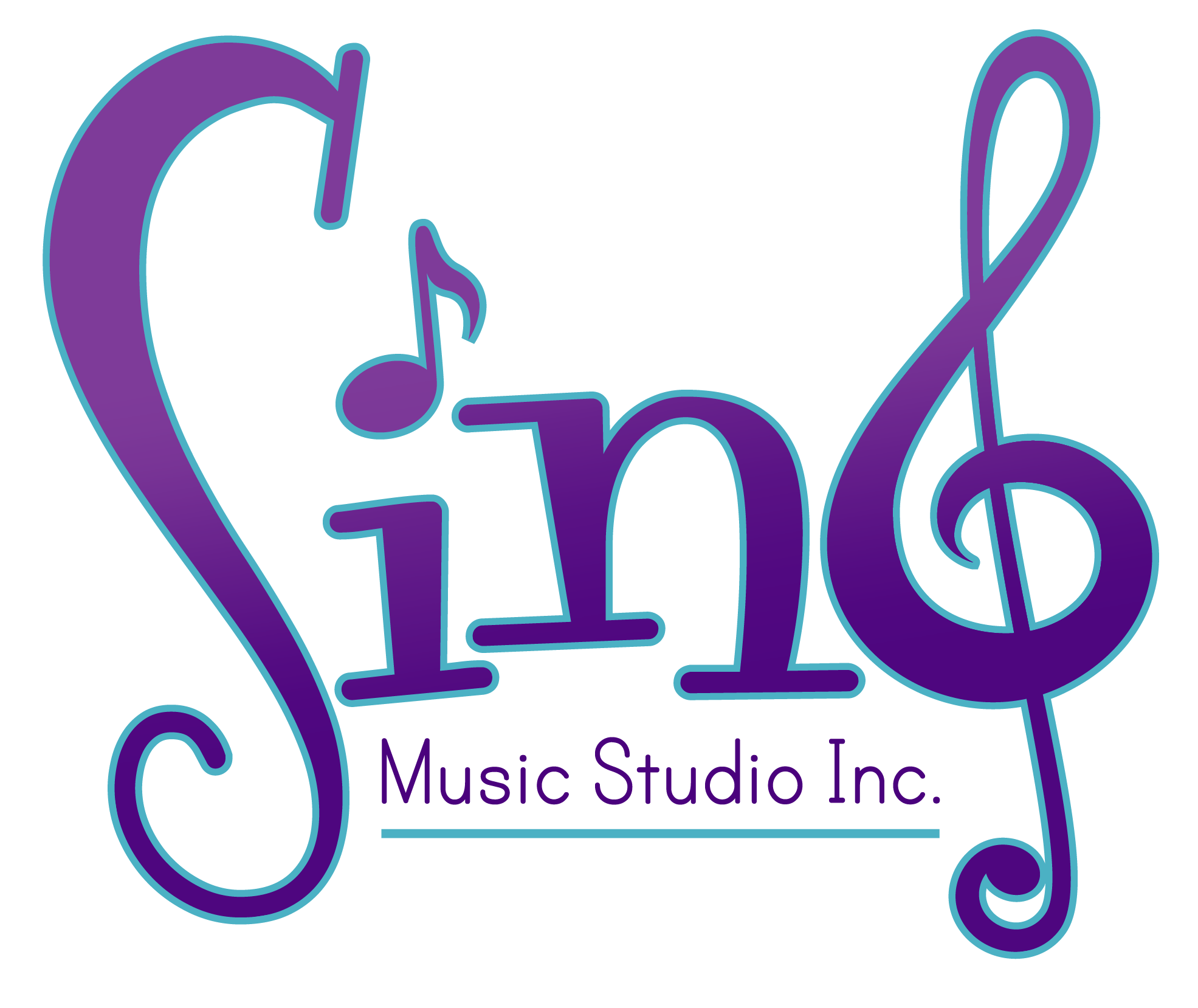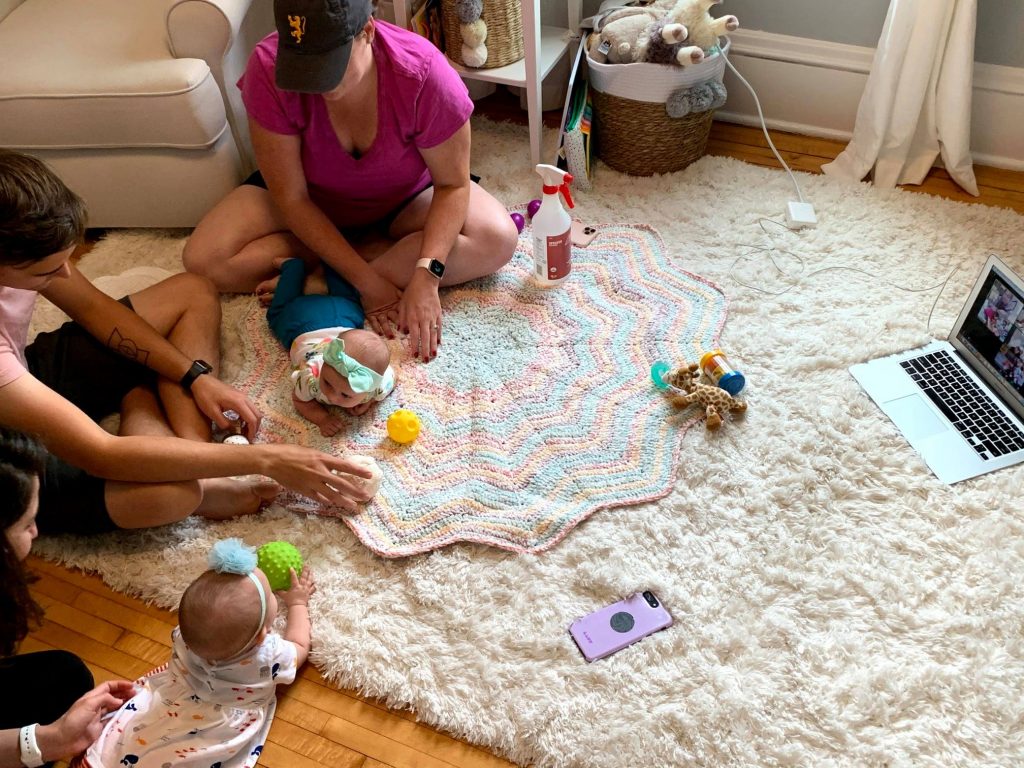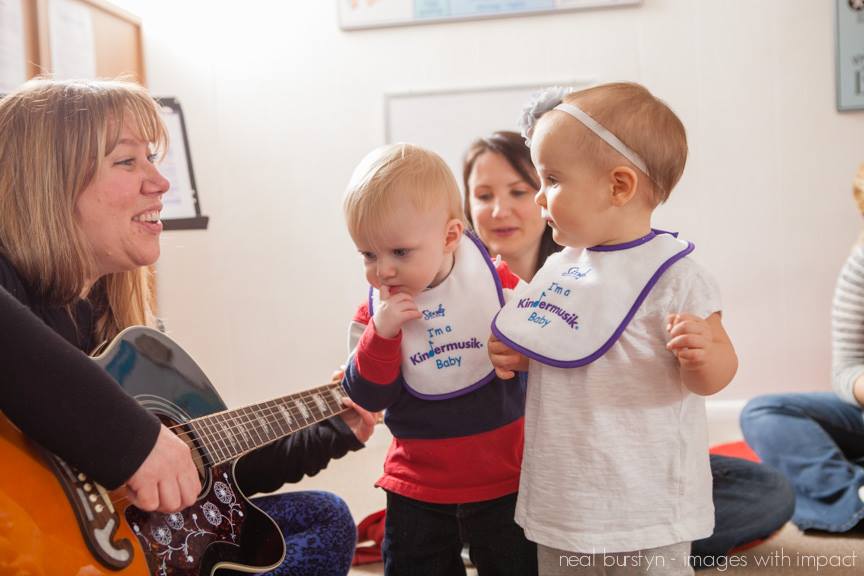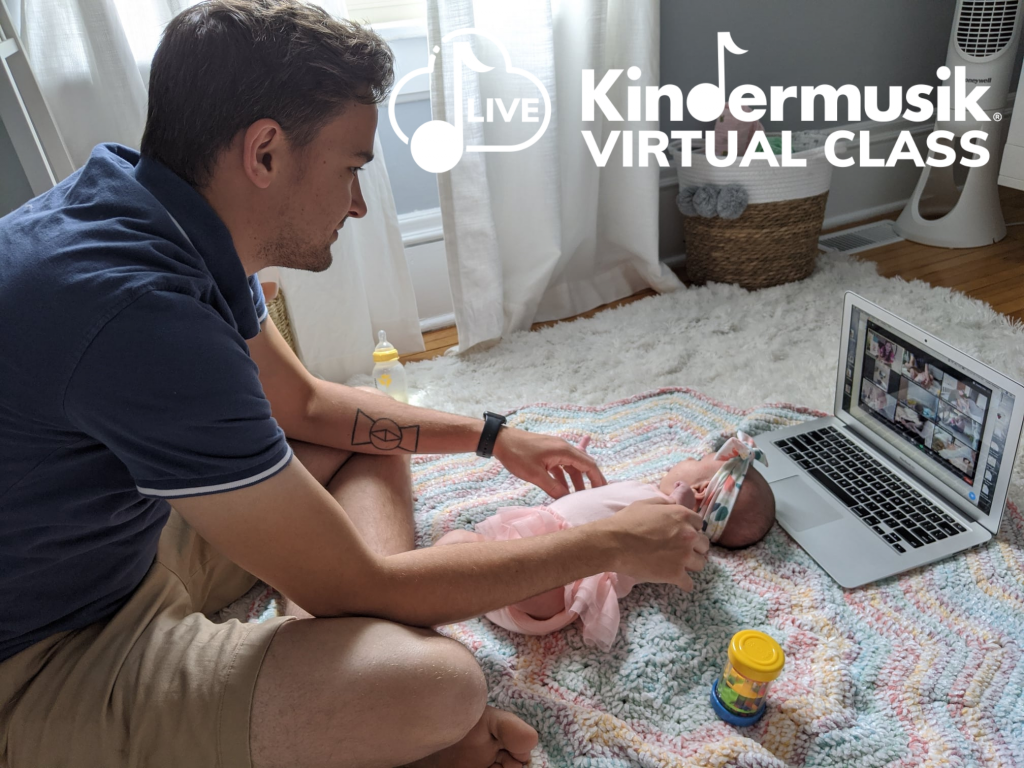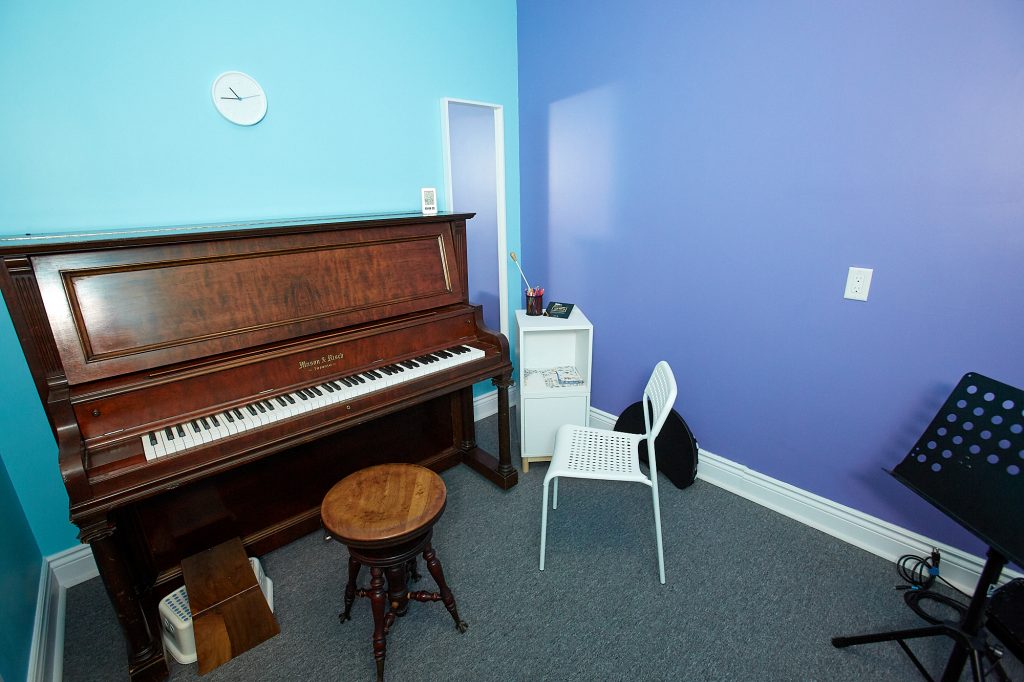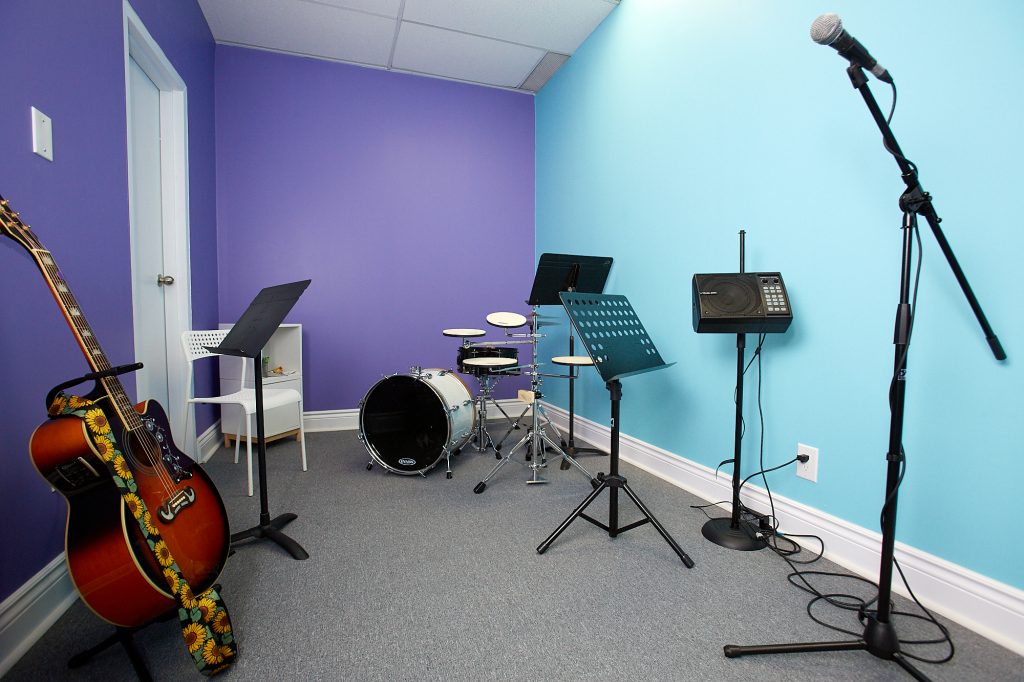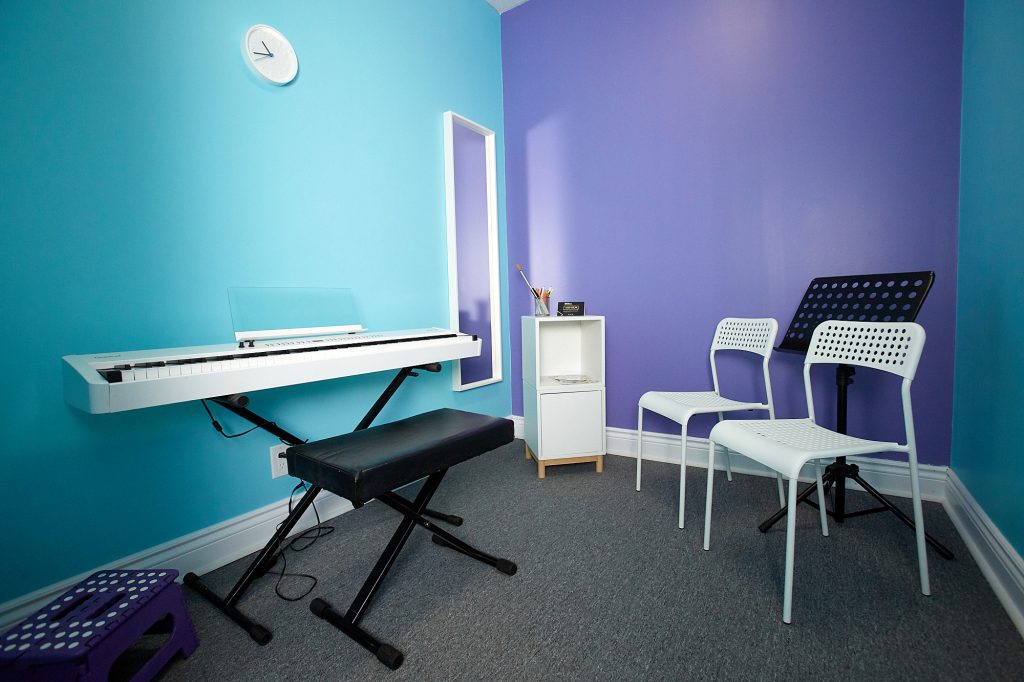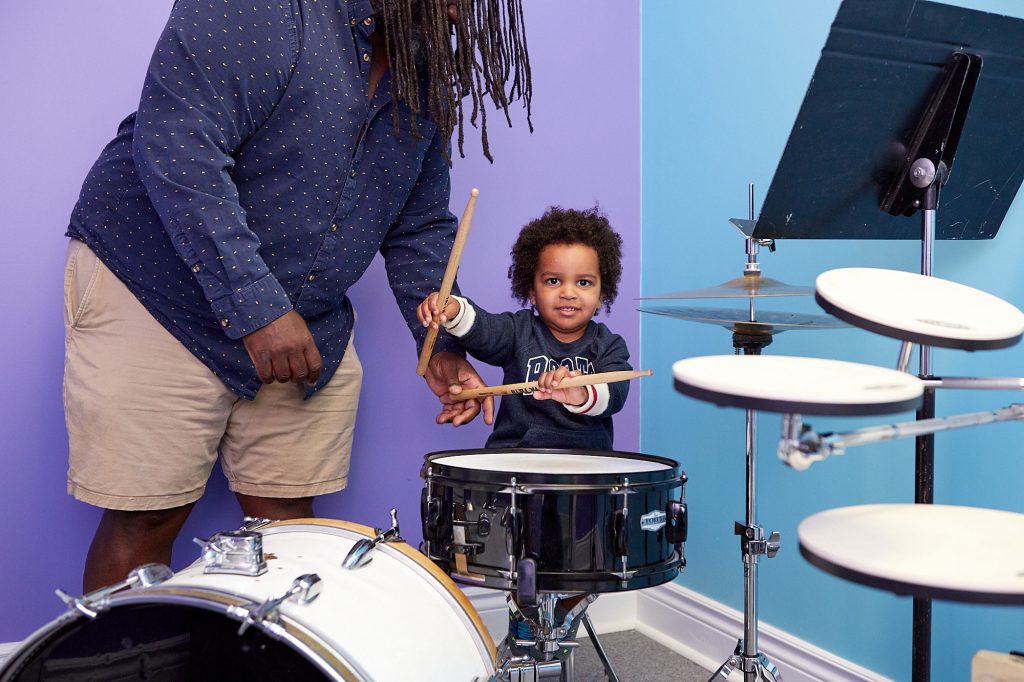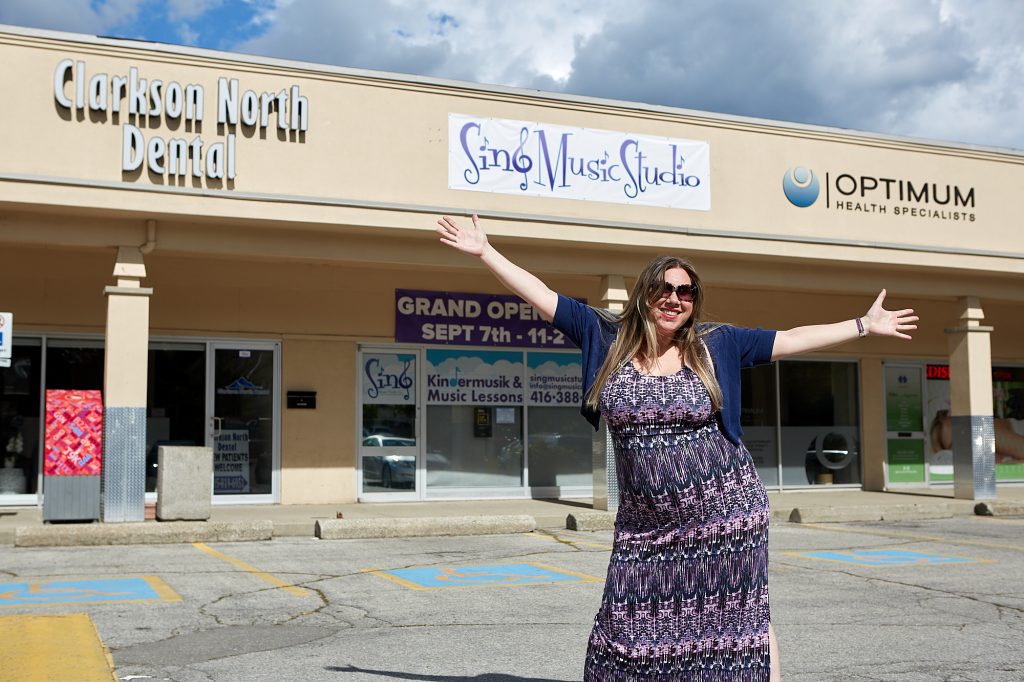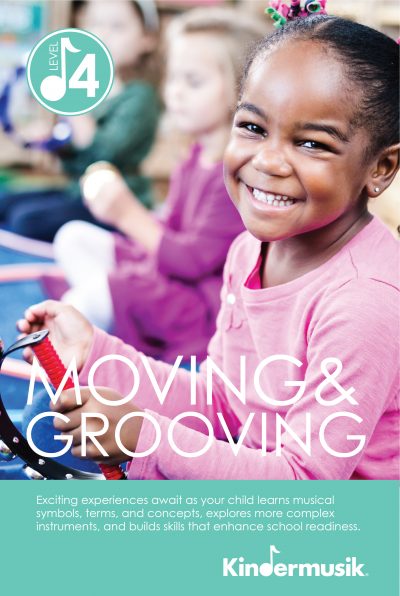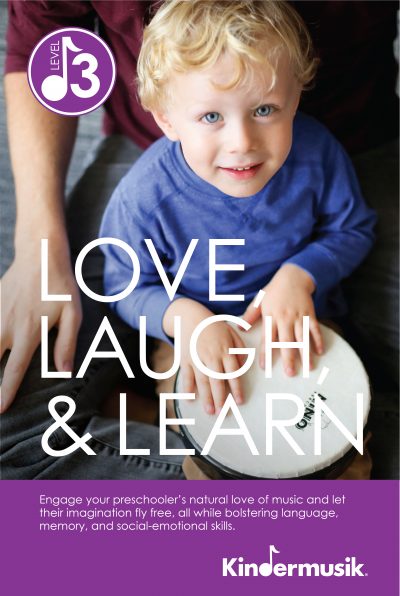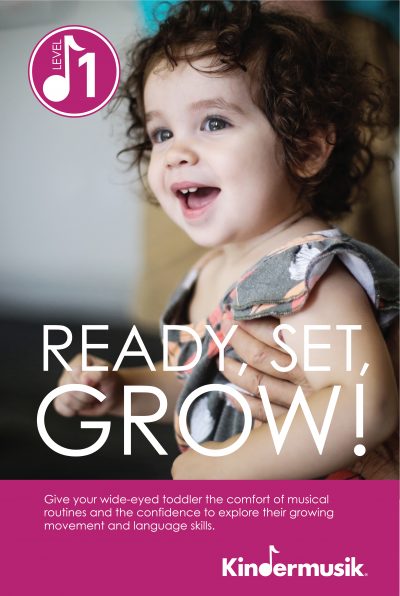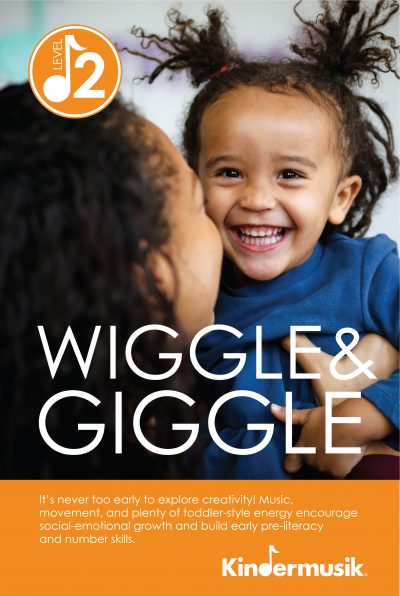Have you wanted to play the piano, but you prefer learning with pop songs, rock anthems, top 40 hits, and other contemporary genres? Our piano lessons in Mississauga allow you to do just that. Keep reading to learn how you can play the piano without classical music or traditional etudes, and please get in touch for more information about online or in-person lessons. We would be happy to hear from your regarding guitar lessons and voice lessons as well.
Can You Learn Piano By Playing Songs?
Yes, you can learn the piano by playing songs, although this approach won’t equip you to play scales, arpeggios, or advanced classical repertoire like concertos and sonatas. If your goal is to be able to read notes, learn chords, and play music off lead sheets or by ear, you can start with your favourite songs and take it from there.
Before we continue, note that we do offer lessons with Rockschool curriculum, which uses top 40 hits to teach music theory, note reading, contemporary playing, and more. You can become a well-rounded modern keyboardist using the music you love – let us know if you have any questions.
Three Options: Sheet Music, Lead Sheets or Ear Playing
Learn To Play The Piano By Ear
Learning music purely by ear is doable, although you won’t be able to read music or lead sheets this way. You can start by picking out tunes on your own, or copy what you hear while listening to a recording.
Begin the process by listening to a tune or reviewing one in your head that you already know. Then, with your right hand, trying to “sound out” the tune on the keyboard. Listen for upward movement, downward movement, steps and skips, and keep going until you can play the tune.
Then, once you have that down, practice playing a bass note (in the left hand) that sounds correct alongside the melody you are playing in your right hand. The left hand notes can repeat themselves – you don’t need to play a different left hand note alongside each note in the right hand.
Thirdly, fill out your bass line with chords. Generally, you can create a filled-out left hand accompaniment with triads, or three notes stacked on top of each other in thirds. Here’s a visualization, courtesy of the University of Indiana:
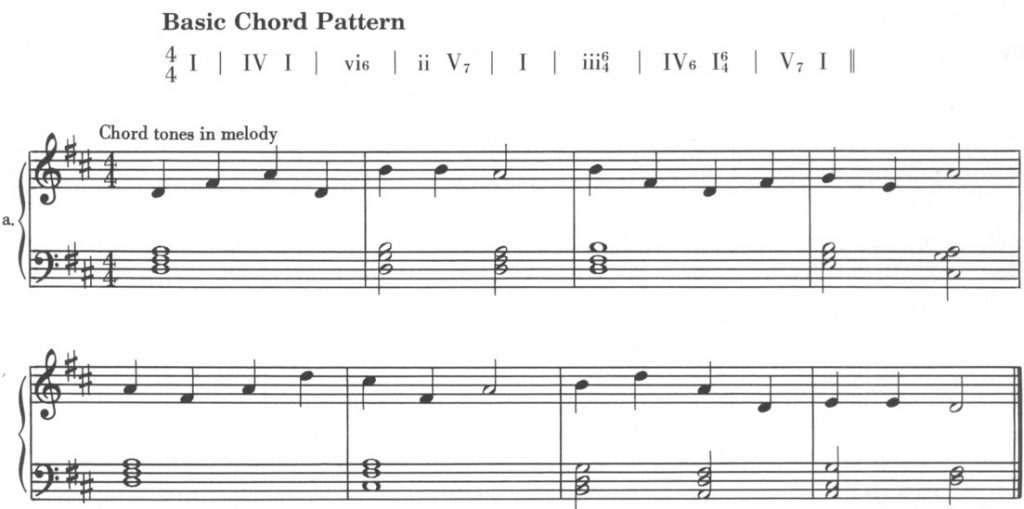
The drawback is that you won’t necessarily know the names of the chords or notes you’re playing unless you learn the notes on the piano.
Learn To Play Songs on the Piano With Sheet Music
If you visit 8notes.com or a similar sheet music aggregator, you can download the sheet music for your favorite rock or pop songs (often for free). If you don’t know how to read music though, it will take some time.
Your first task will be to learn the keys on the piano keyboard. You need to be able to identify middle C, F, G, and so on. You can learn this on Youtube, from flashcards, or in a book.
Next, you must learn to read notes on a musical staff (both the bass and treble clefs). This takes some time, but reading music will allow you to download any sheet music you want to and learn how to play it.
You can even use the sheet music from your favorite songs to drill your knowledge. Simply pencil in the names above each note on the staff in both the treble and bass clefs, erase it and do it again until you are fluent. Then put your knowledge into practice by reading the sheet music and playing the notes on the keyboard, one hand at a time. Putting your hands together is a challenging leap, and you should learn your music hands separately first.
Last tip for this section – you must practice your music very slowly and carefully. This applies to every instrument, whether you are taking violin lessons in Mississauga or something else. Each time you play a wrong note, you introduce a new bad habit. So play the music no faster than you can play it accurately.
Learning Songs on the Piano From Lead Sheets
Lead sheets (or reading a “fake” book) are different from ear playing or reading sheet music. You are given fragmented pieces of the melody (only repeated in the music when something changes) and symbols for the accompanying chords. Generally, you would only successfully read a lead sheet for a song you are already familiar with. Here’s an example from MusicNotes.com:
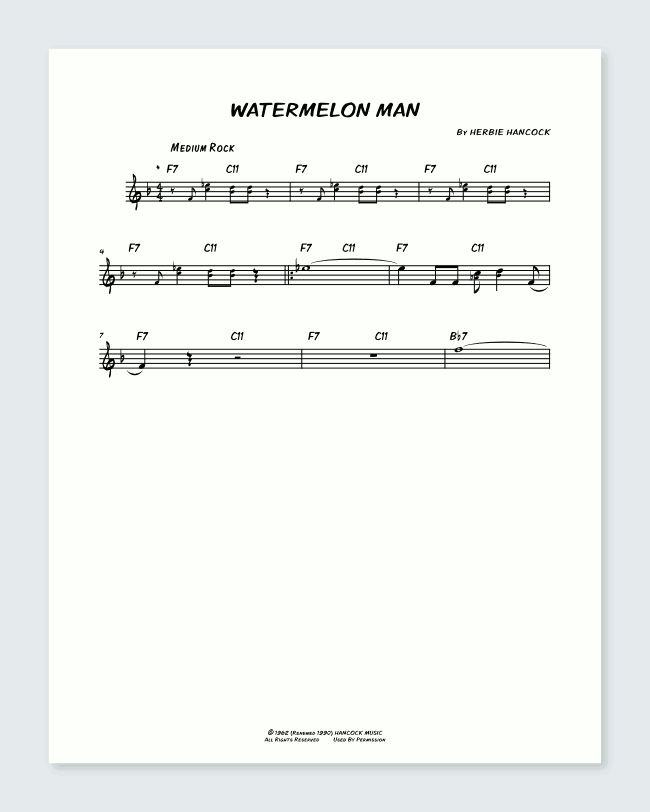
You will need to be able to read music and have a strong knowledge of chords and inversions to read lead sheets, so this is not the best way for a beginner to learn how to play the piano. You are given chord symbols on the page (like F7, D9, etc.) then build the actual chords on the keyboard on your own.
Learn To Play Your Favourite Songs on the Piano With a Skilled Teacher
If you want to become a confident pianist, your best bet is to work with a teacher in person or online. At Sing Music Studio, we can help you read music, play chords, improvise, read lead sheets, and more, and we want you to play the music you love. Get in touch regarding music lessons in Mississauga today.
